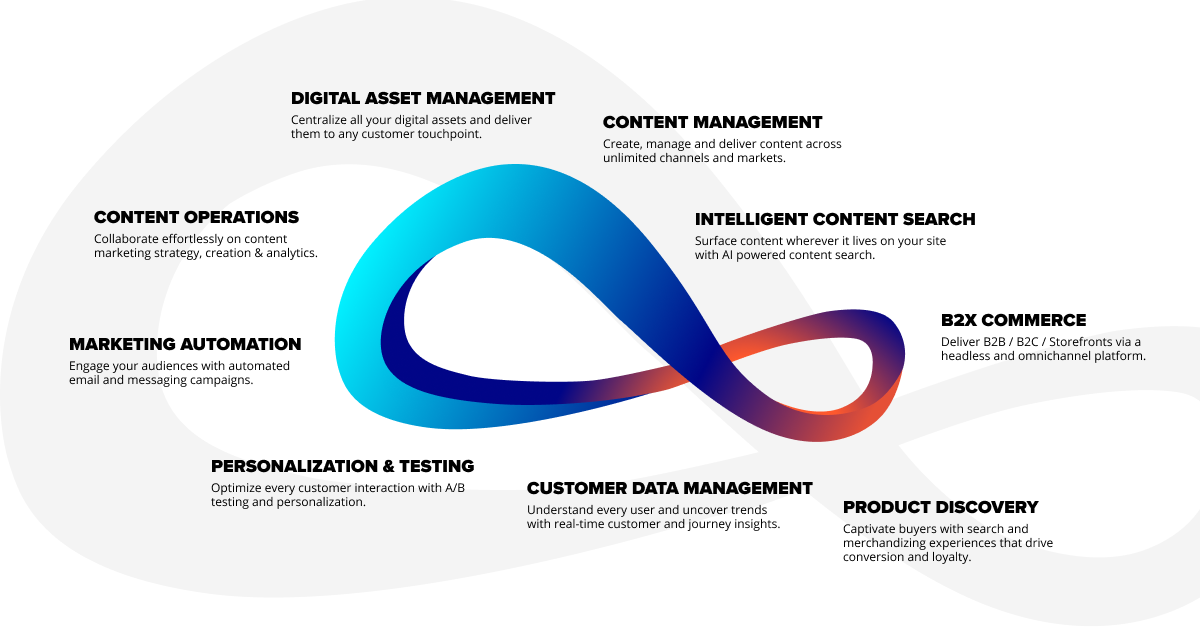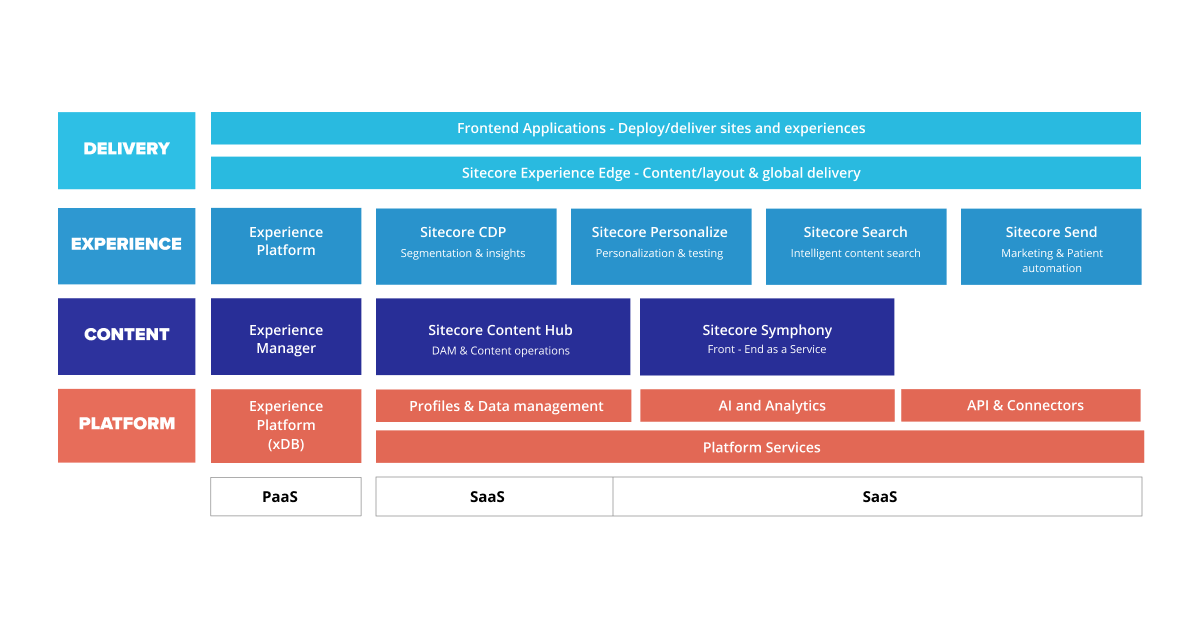Reduce time to market with Sitecore Composable Architecture
One size doesn’t fit all! This principle is one of the main reasons why Sitecore recently announced a strategic shift from the traditional “all-in-one-platform” approach to composable DXP architecture to adapt to the current market trends and emerging needs, especially in the enterprise space.
What is Composable DXP Solution Architecture?
According to Sitecore’s Jill Roberson,
“A composable digital experience platform (DXP) is one that is entirely modular, allowing for incremental changes and updates to composite parts. Instead of having a complete, all-in-one digital experience platform that includes asset management, engagement tools and presentation layer editing, each of these components operate as packaged business capabilities (PBCs) that can function independently and communicate with one another through APIs.”
This means that Sitecore’s product offerings are becoming more granular, allowing companies to orchestrate their marketing technology stack according to their current business priorities, marketing processes, and technological ecosystem. This paradigm shift from the traditional “all-in-one DXP” provides reduced time-to-value, omnichannel readiness, customer centricity, as well as business agility in terms of DXP vendor selection. Companies can easily replace each architectural component without having to implement an entire DXP solution from scratch.
Addressing Vertical Specific CX Challenges
One of Sitecore’s strategic business goals is to increase value for its customers and partners. To do this, Sitecore addressed vertical-specific customer experience challenges and accelerated time-to-market for DXP solutions built on top of Sitecore’s product stack. This can be easily recognized by Sitecore’s recent acquisition of Four51. This strategic move to increase value for manufacturing clients resulted in the brand-new Sitecore Order Cloud. The newly-announced Sitecore Health Cloud expected in 2022.
Sitecore’s granular product modules can be integrated to create a vertical-specific solution architecture that focuses on the emerging needs and challenges of any industry.
The Role of the Service Providers
The shift towards Composable Solution Architecture isn’t something specific to Sitecore--it is the strategic choice for most mature DXP and eCommerce product vendors in the market today. This change fundamentally increases the importance of choosing the right implementation partner to ensure the success of company’s marketing transformation initiatives.
Typically, the service provider recommends a solution architecture based on the business context, processes and priorities. The service provider is also responsible for choosing the exact marketing technology components that comprise the overall DXP solution. Solution architecture is typically based on modules--all built by different vendors--that integrate to serve specific marketing and business capabilities. A popular example of this is the integration of Sitecore, Salesforce CRM, and Salesforce Marketing Cloud.
With that said, companies selecting service providers for their marketing transformation initiatives shouldn’t just focus on technical capabilities. It’s also important to select a transformation partner with a holistic vision across the DXP product market. This partner can design a solution that addresses common problems in the client’s industry and takes into account their particular business needs, current marketing operations, and existing technological toolset.
Sitecore’s Feature-Proof Product Offerings
At Symposium 2021, Sitecore’s biggest annual event, the company announced the Future of the Digital Experience Platform. It describes the launch of brand-new, enterprise-ready SaaS product offerings that focus on granularity in terms of customer experience management capabilities.

In the graphic above, each aspect of the customer experience is represented by a particular business capability forming out the customer experience management lifecycle.
At the core of this new approach are specific product modules serving each capability individually:

Content Management Capabilities
- Sitecore Experience Manager Cloud is a cloud-native CMS designed to create and deliver personalized digital experiences across different channels and touchpoints.
- Sitecore Symphony is a next-generation visual editor serving front end-as-a-service capabilities.
- Sitecore Content Hub is Sitecore’s Digital Asset Management SaaS platform. It allows companies to aggregate content from different systems, manage the content creation process, and publish content across various channels.
Customer Engagement Capabilities
- Sitecore CDP: As a result of SiteCore’s recent aqcuisition of Boxever, the Sitecore Customer Data Platform is packaged software that creates a unified customer database. It aggregates behavioral customer insights and combines them with user journey analytics data from different channels and interaction points like web, mobile, e-mail, CRM, IoT, and others.
- Sitecore Personalize: This product delivers highly-personalized, real-time experiences, optimizes conversion funnels, and engagages customers with relevant content and product offerings.
- Sitecore Search: Powered by Sitecore’s acquisition of Reflektion, Sitecore Search works both front and back end to enable developers, customers, and marketers to quickly and easily find what they’re looking for.
- Sitecore Send: Fully SaaS, Sitecore’s powerful email and marketing automation platform is powered by the recent acquisition of Moosend. SiteCore Send focuses on better conversations and in-context interactions.
eCommerce Capabilities
- Sitecore Discover: SiteCore recently acquired Reflektion and now Sitecore Discover delivers real-time search experiences tailored for individual visitors. This leads to better customer engagement and, as a result, higher revenue. The product incorporates AI technologies that integrate search with marketing and commerce capabilities to understand and predict customer patterns, context, and needs.
- Sitecore OrderCloud: SiteCore offers products tailored for the manufacturing space following their acquisition of Four51. Sitecore OrderCloud is an API-first, headless e-commerce platform. OrderCloud is perfect for brands thinking about adding an element of ecommerce to their business.
LET’S TALK about how Sitecore’s composable architecture provides a scalable platform to support your growing content, data, and customer needs.


